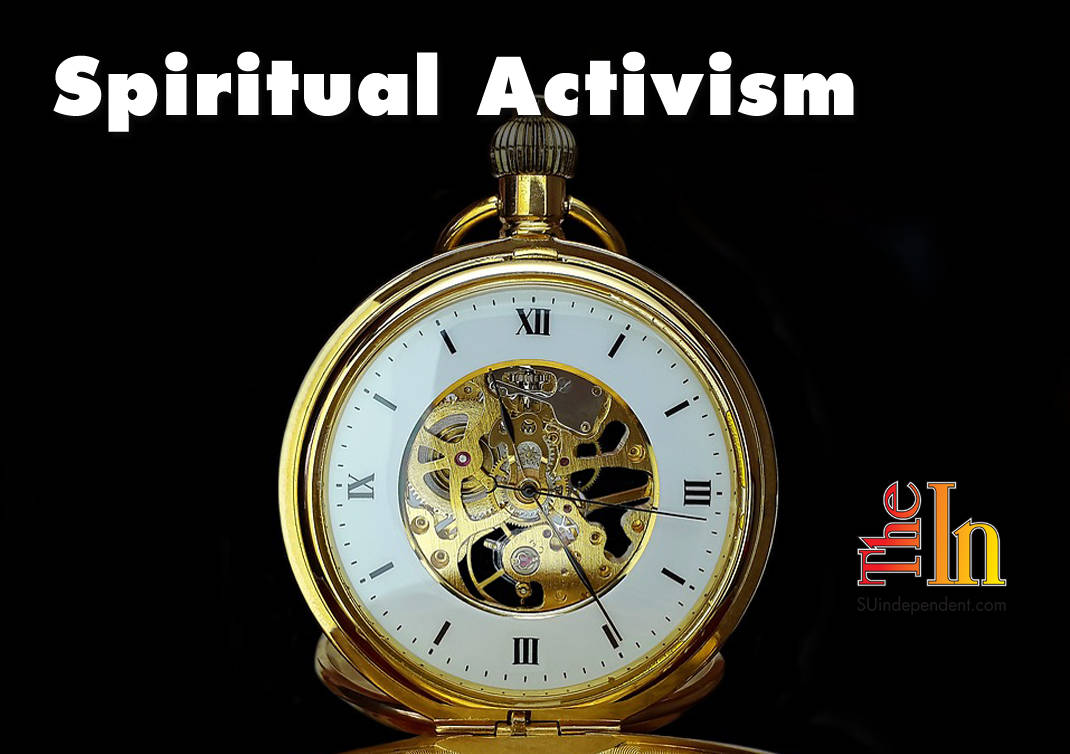By Russ Cashin
As I was going about my usual routine a few days ago, I overheard a news report about a heated exchange between a reporter and a White House senior policy advisor. As I briefly listened to both the content and tone of that verbal exchange, I realized that what I heard was a failure to maintain even a minimal level of civil discourse by a person who, at that moment, represented the highest governing administration in our country.
Of course, I understand that such exchanges occur between people — and probably more often that we’d like to acknowledge. But isn’t it time for us to expect and even demand a higher level of respectability and integrity in the conduct of those who represent us here at home and abroad?
I am keenly aware that many of our political leaders and other individuals who hold high positions both in public and private organizations regularly bend the truth. These lies and hypocritical behaviors become obvious to anyone who is paying close attention and who is willing to fact check. But at least the more experienced politician will attempt to maintain a level of civility and decorum. This civility seems to have all but gone “out the window” as of late.
So how do we influence the tone of the current public discourse? What can we do to make a change? The answer all comes down to one word: impeccability.
The word “impeccability” comes from the Latin “picatus,” which means “sin.” The “im” means “without,” so the word literally means “without sin.” We then need to ask, “What is sin?” In religious terms, according to dictionary.com, the word “sin” means “any act regarded as such a transgression, especially a willful or deliberate violation of some religious or moral principle.” But this archaic meaning is based on a set of externally defined religious “rules” rather than intrinsic humanistic principles. For purposes of this discussion, let’s step away from that moral framing and use a more generalized and commonsense meaning of “sin” defined as “any reprehensible or regrettable action, behavior, lapse, etc.”
Using this practical definition, to be impeccable means that we engage in words and actions that are not “reprehensible” or “regrettable.” The word “reprehensible” denotes behavior that harms ourselves or others and suggests any type of behavior that we might later regret. A more positive framing the word “impeccability” includes and requires the fundamental values of respect (for self and others), kindness, honor, honesty, personal and professional integrity, and responsibility. For impeccability in our discourse to exist, it is asked of us that we rise to the highest level of conduct in all that we say or do.
According to Don Miguel Ruiz in his book “The Four Agreements,” the first agreement for us to master is to “Be impeccable with our word,” because our words are powerful. We directly experience how powerful our speech is when we get angry and raise our voices to someone or are on the receiving end of such a negative energy. We also experience the power of the word when we hear or speak ill of others — generally called gossiping, something that seems to be common even in the context of political speech these days. The words of others are often convincing because we as humans want to believe in the sincerity of others, and the words may also be a reflection of what we are already inclined to feel or perhaps believe — even if it isn’t true.
So if we really want to make a difference in our society and change the political dialogue that feels so disrespectful and harsh, we must first start by working on our own impeccability. From there, we model and request that others, including our elected representatives, do the same. This is accomplished by paying close attention and developing an ongoing awareness of our own thoughts and words, which inevitably lead to our actions that follow.
When we start to practice impeccability in our lives, we invite in the values of respect for self and others and begin to develop greater personal integrity that will assist us in really practicing what we preach. This enables us to “be the change we want to see in the world.”
It is time to be impeccable and to begin that change now.




